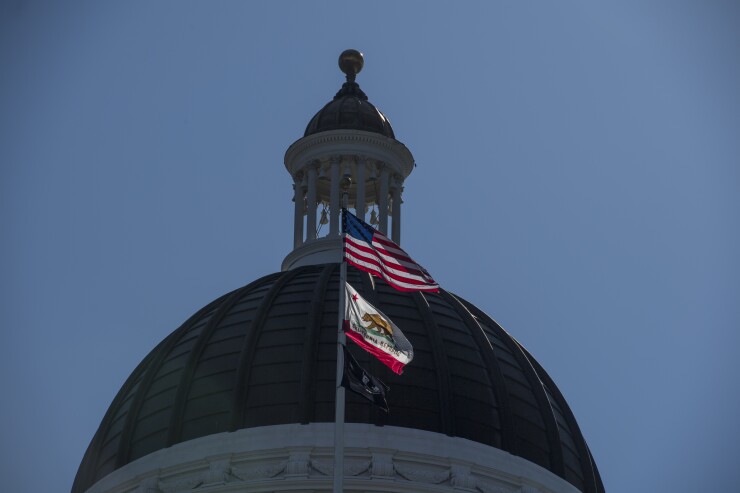
David Paul Morris/Bloomberg
As California considers new synthetic intelligence necessities for monetary regulators, commerce teams and authorized specialists are pushing regulators to recruit AI specialists to provide steering for monetary establishments adopting newer types of the know-how.
California Senate Bill 69, launched by Senator Jerry McNerney in January of this 12 months, would require the California Attorney General’s workplace to “set up and keep a program to construct inside expertise in synthetic intelligence” inside the state’s Department of Justice.
The American Fintech Council launched an announcement on Monday in “robust help” of SB 69. The AFC acknowledged that the invoice would require the legal professional basic to “recruit or practice personnel with AI expertise.”
“AFC commends California lawmakers for recognizing the necessity to construct regulatory capability round AI and stands able to work with policymakers to make sure consumer-first, innovation-friendly insurance policies that protect California’s standing as a pacesetter in accountable monetary know-how,” the assertion stated.
Ian P. Moloney, head of coverage and regulatory affairs at AFC, instructed American Banker that AI as a instrument has been in the banking trade for a few years, significantly by means of machine studying and automation. New rules regarding newer types of AI, similar to generative and agentic AI, could intersect with present regulatory frameworks surrounding present know-how.
“AFC believes it is essential for regulators to know the present authorized and regulatory panorama and the way it applies to AI know-how earlier than pursuing any further or new necessities,” Moloney instructed American Banker.
As the usage of AI is reshaping the banking and monetary companies trade, there have been comparatively few federal AI legal guidelines carried out in what is usually a regulation-heavy trade. A Biden-era government order on AI was overturned by President Trump inside a number of days of his return to the White House. President Trump changed it along with his personal government order calling for U.S. innovation in AI later that week.
Moloney instructed American Banker that there’s a potential for “regulatory diffusion” ought to state-level AI regulation see success.
“There is a necessity to maneuver the AI dialog to the federal stage the place, given the shortage of geographic limitations related to the use instances and the know-how at giant, the federal authorities has the most effective jurisdiction and the most effective alternative to make sure that there is a harmonized AI method to laws and regulation,” he stated.
“Responsible fintech corporations and modern banks more and more depend on AI to ship protected, trendy companies, from increasing entry to credit score to servicing traditionally underserved communities,” stated Ashley Urisman, director of state authorities affairs at AFC. “This laws ensures regulators totally perceive these applied sciences to allow them to shield shoppers and encourage truthful competitors amongst corporations leveraging AI.”
A special California AI invoice often called SB 1047 was vetoed by Governor Gavin Newsom in September 2024, and Virginia Governor Glenn Youngkin additionally vetoed a Virginia AI invoice in March of this 12 months.
Experts say that SB 69 might even see success the place different payments have failed. Devika Kornbacher, co-chair of the worldwide tech group at multinational legislation agency Clifford Chance, instructed American Banker that SB 69 is using a distinct tactic than the vetoed SB 1047 from final 12 months.
“SB 1047 targeted on regulating frontier (or essentially the most highly effective) AI fashions and, amongst different issues, fed the controversy on whether or not improvement of AI must be regulated in any respect,” Kornbacher stated. “SB 69 focuses on constructing out AI expertise among the many regulators and in California extra broadly. Of course, that expertise may result in a regulator deciding that frontier AI fashions ought to have extra scrutiny, however the invoice would not take a specific stance on what must be regulated, simply how the regulators must be ready.”
“As far as the result of this invoice, AI literacy is a generally understood and supported idea and SB 69 appears to be framed broadly sufficient to keep away from a veto,” she continued. “The present political setting shouldn’t be one the place I’d place a wager on any consequence, [but] maybe SB 69 might be seen as much less controversial and be signed into legislation.”